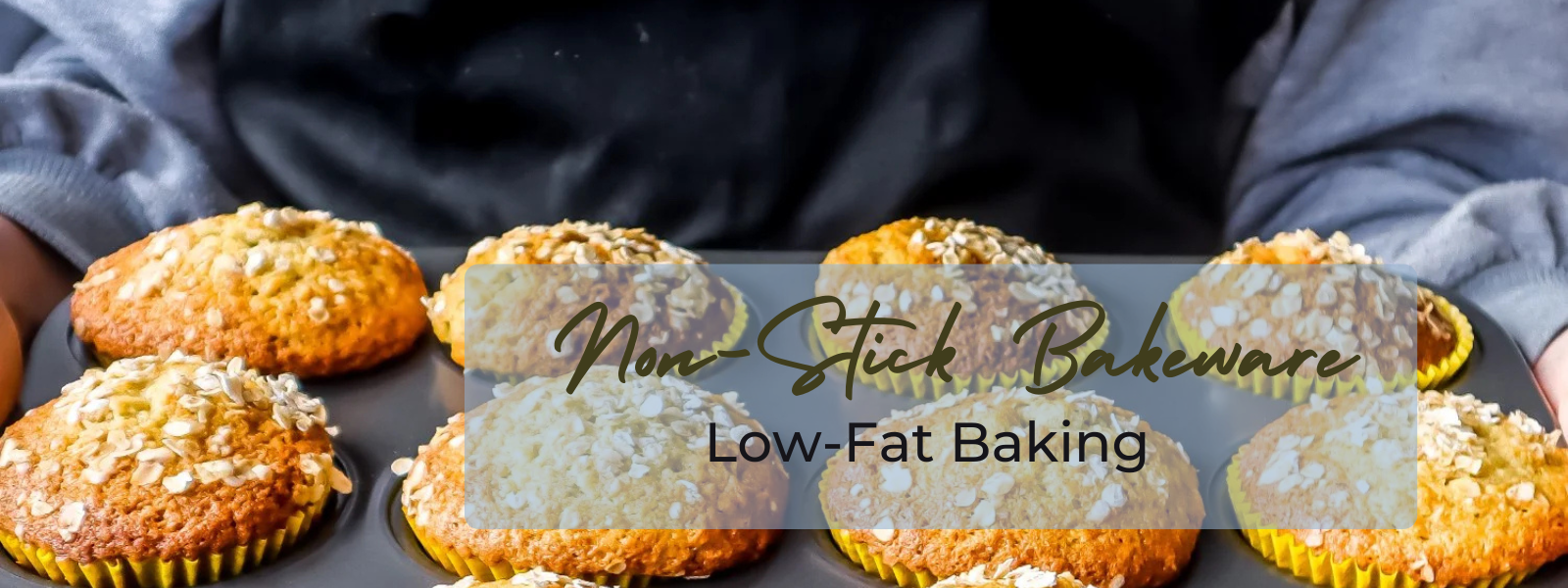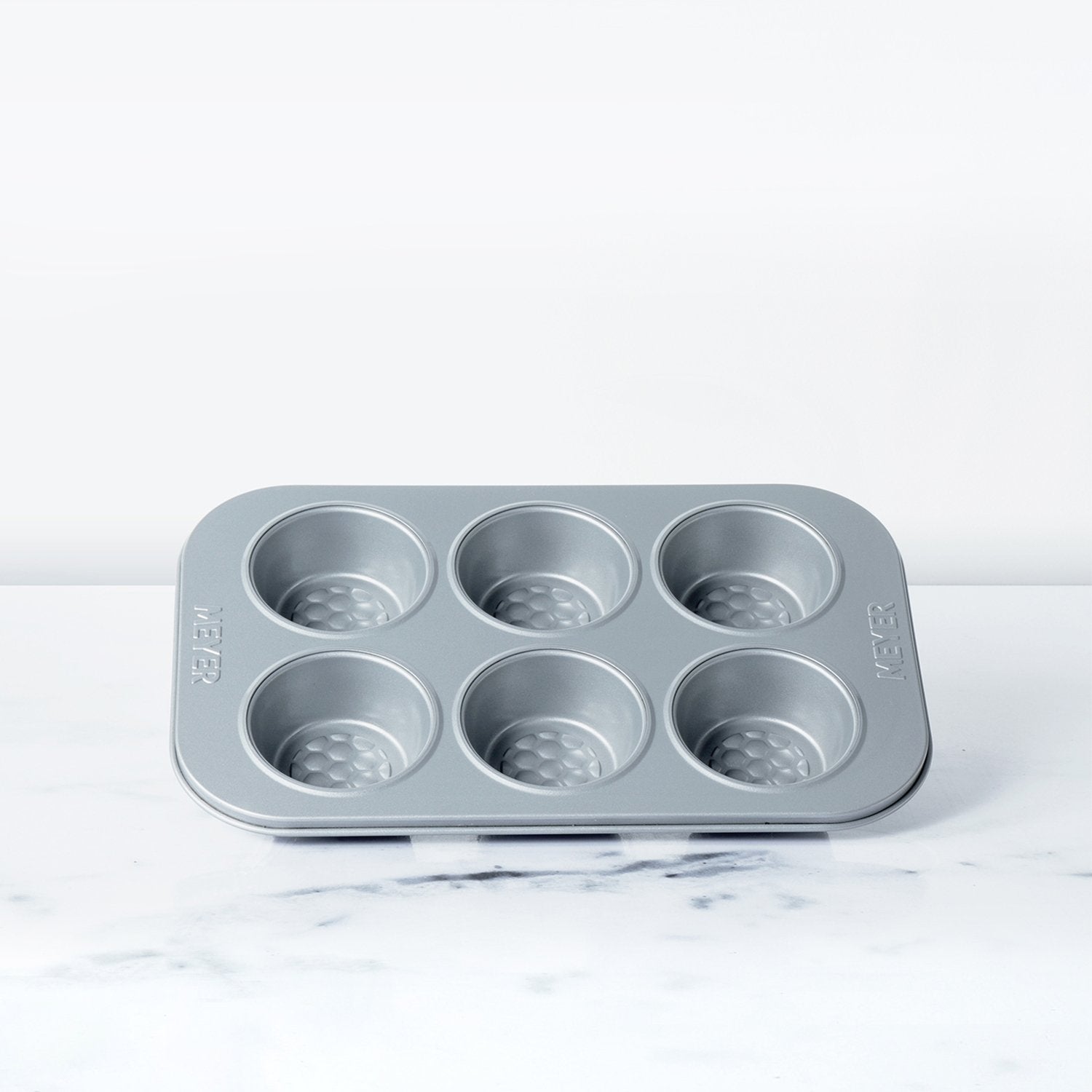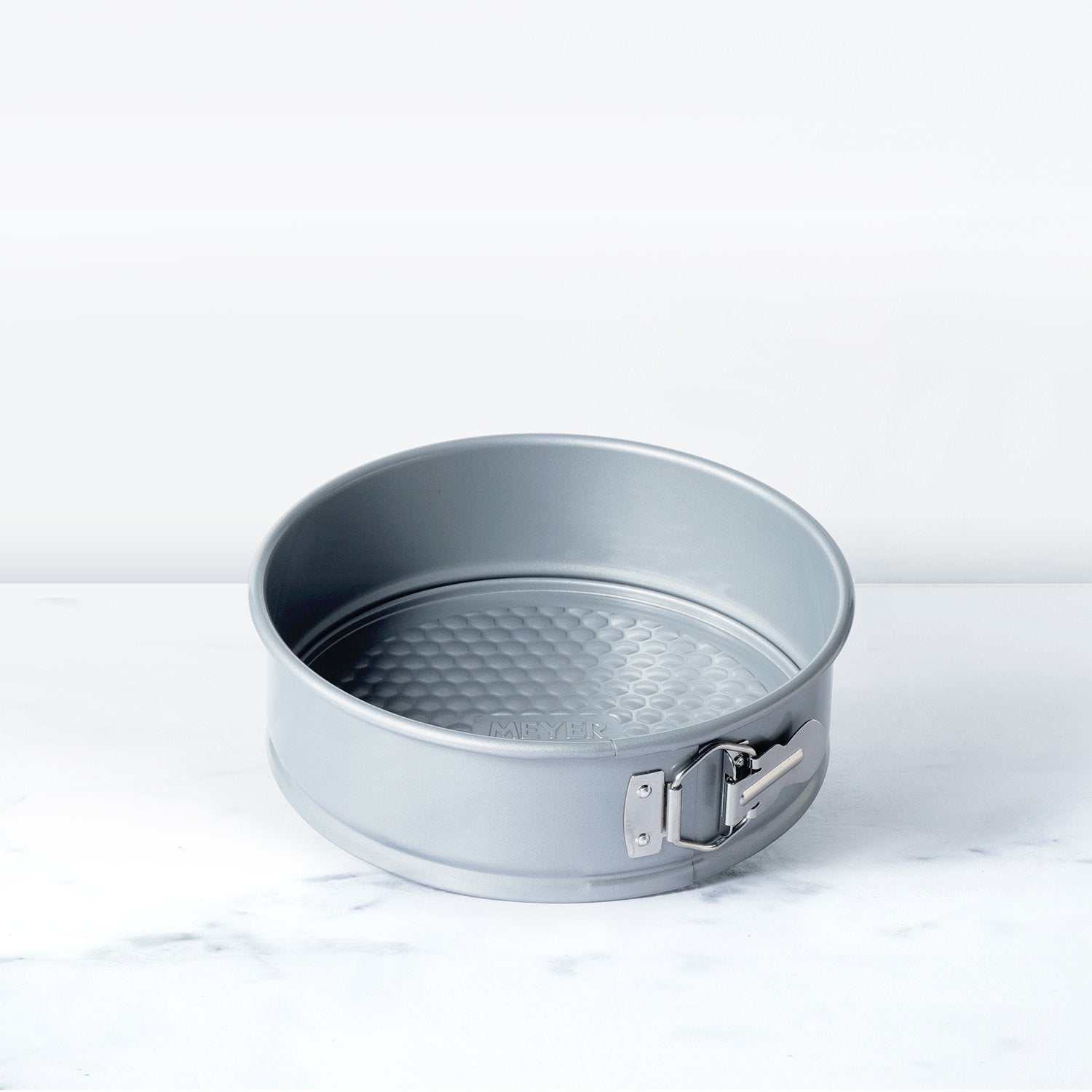When selecting bakeware, safety is just as important as functionality and design. Choosing bakeware made from non-toxic, durable materials can help ensure that your cooking experience is both safe and enjoyable. Here’s a guide to understanding non-toxic bakeware options and tips for making the best choices to protect your health and maximize the lifespan of your bakeware.
Table of Contents
- 1. Opt for Non-Toxic Coatings
- 2. Choose Natural Materials
- 3. Consider Anodized Aluminum for Non-Reactivity
- 4. Invest in High-Quality Silicone Bakeware
- 5. Use Enamel-Coated Bakeware Carefully
- 6. Avoid Copper Bakeware Without a Protective Lining
- 7. Verify Quality Control Standards
- 8. Tips for Safely Using and Maintaining Bakeware
- 9. Conclusion
Opt for Non-Toxic Coatings
Many non-stick coatings, particularly older versions, contain chemicals like PFOA (perfluorooctanoic acid) and PTFE (polytetrafluoroethylene), which can release harmful fumes at high temperatures. These chemicals have been largely phased out in modern non-stick bakeware, but it’s still crucial to verify that the products you choose are free from these compounds.
Tips:
- Look for labels stating “PFOA-free” and “PTFE-free.”
- Consider bakeware with alternative non-stick coatings, such as ceramic or silicone, which are known to be free from harmful chemicals.
- Choose reputable brands with certifications or clear transparency about their materials, like Meyer Bakemaster or other trusted manufacturers.
Choose Natural Materials
Opting for natural materials like ceramic, glass, and stainless steel can significantly reduce exposure to chemicals and toxins. These materials are inherently safe and do not contain synthetic coatings that could potentially break down over time.
- Ceramic Bakeware: Made from natural minerals, ceramic bakeware is non-reactive and does not leach chemicals, even at high temperatures. It’s also known for its excellent heat distribution and attractive designs.
- Glass Bakeware: Another non-reactive choice, glass doesn’t absorb food flavors or odors and is ideal for acidic dishes like casseroles and baked fruits.
- Stainless Steel: High-quality stainless steel is durable, doesn’t corrode easily, and doesn’t leach toxins. It’s also resistant to scratches and can withstand high heat, making it ideal for both baking and roasting.
Tips:
- For durability and safety, look for bakeware labeled “100% ceramic” or “borosilicate glass” for the best heat tolerance.
- Avoid glassware that isn’t oven-safe, as it may crack or shatter under high heat.
- Choose food-grade stainless steel bakeware, which is typically indicated by 18/10 or 304-grade stainless steel.
Consider Anodized Aluminum for Non-Reactivity
Standard aluminum bakeware can sometimes react with acidic foods, leading to potential leaching of aluminum into food. Anodized aluminum, on the other hand, has undergone an electrochemical process to create a non-reactive and durable surface that is scratch-resistant and safe for baking.
Benefits:
- Anodized aluminum heats quickly and evenly, ideal for cakes and cookies.
- It resists scratches and stains and does not react with acidic foods.
Tips:
- Look for “hard anodized” or “fully anodized” labeling to ensure the highest durability.
- Although anodized aluminum is durable, avoid sharp metal utensils to protect the surface.
Invest in High-Quality Silicone Bakeware
Silicone is increasingly popular due to its flexibility, non-stick properties, and ease of cleaning. However, not all silicone bakeware is created equal. Some lower-quality silicone products may contain fillers that can affect heat resistance and safety.
Tips:
- Look for food-grade, BPA-free silicone bakeware to ensure safety.
- Perform a “pinch test”: pinch and twist a part of the silicone. If it turns white, it likely contains fillers. Pure silicone should retain its color.
- Avoid temperatures beyond the manufacturer’s guidelines, typically around 450°F, as some silicone can warp under extreme heat.
Use Enamel-Coated Bakeware Carefully
Enamel-coated bakeware has a metal core, usually cast iron or steel, coated with enamel. This type of bakeware is safe, durable, and naturally non-stick. It’s also non-reactive, making it a good choice for acidic foods. However, enamel can chip if dropped or exposed to sudden temperature changes.
Tips:
- Choose high-quality enamel bakeware with thick coatings to avoid chipping and ensure longevity.
- Avoid exposing enamel to direct flame or very high temperatures to prevent cracking or chipping.
- Hand wash enamel-coated bakeware to maintain the integrity of the coating.
Avoid Copper Bakeware Without a Protective Lining
Copper is a superb conductor of heat, which makes it highly valued by professional bakers and chefs. However, unlined copper can react with food, especially acidic ingredients, and may leach into dishes. Look for copper bakeware that’s lined with stainless steel or tin for safety.
Tips:
- Use copper bakeware only if it’s properly lined with a non-reactive material.
- Clean copper with care, using non-abrasive solutions that will maintain the protective lining.
- Re-tin copper bakeware if the lining starts to wear out, as copper can be toxic if it comes into direct contact with food.
Verify Quality Control Standards
Some bakeware may contain lead, cadmium, or other heavy metals that can leach into food, particularly in lower-quality products or those with decorative glazes. While reputable brands adhere to safety standards, it’s wise to confirm the bakeware meets FDA or international safety standards.
Tips:
- Check for certifications or safety assurances, especially for bakeware with colored glazes or decorative designs.
- Opt for U.S. or European-made bakeware when possible, as these regions tend to have stricter quality standards.
- Avoid bakeware with glazes that look poorly applied or uneven, as this could indicate potential safety issues.
Tips for Safely Using and Maintaining Bakeware
Proper care and use of bakeware can also help ensure safety, as well as extend the lifespan of your bakeware.
- Preheat Before Use: Always preheat your oven before placing bakeware inside to ensure even heating.
- Avoid Abrasive Cleaners: For non-stick or coated bakeware, avoid abrasive scrubbing to maintain the surface.
- Monitor Temperature Guidelines: Each material has specific heat tolerances; ensure your bakeware is suited for the intended recipe.
- Use Non-Metal Utensils: Avoid metal utensils on coated bakeware to prevent scratching and wear.
- Check for Cracks or Chips: Periodically inspect bakeware, especially glass or enamel, for any cracks, chips, or warping. Replace any damaged items to avoid potential safety hazards.
Conclusion
Choosing non-toxic and durable bakeware is essential for both health and baking quality. Non-stick coatings, ceramic, glass, stainless steel, anodized aluminum, and high-quality silicone are some of the safest materials that also offer convenience and longevity in the kitchen. Prioritizing quality over low cost and following proper care instructions can ensure that your bakeware remains safe, effective, and enjoyable to use for years to come.











Leave a comment